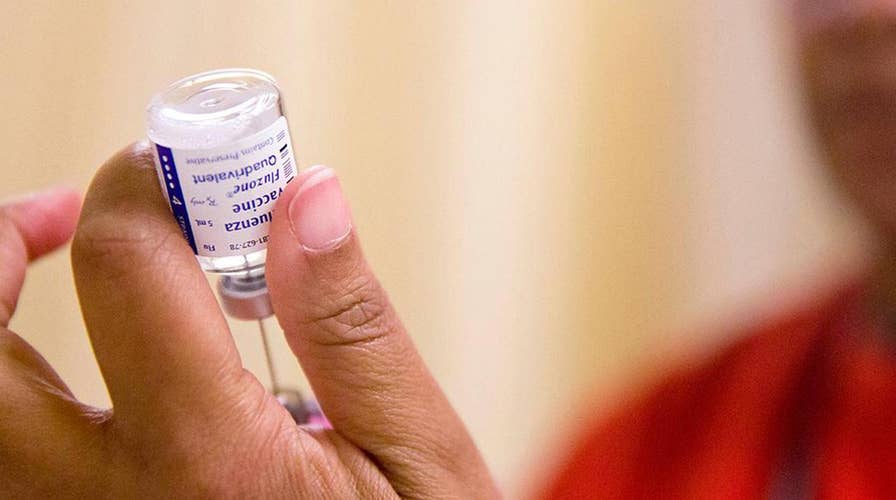CDC wants you to get a flu shot before it's too late
Warning of a potential severe flu season, the Centers for Disease Control recommends anyone over 6 months old get the vaccination by the end of October.
Pigs at a recent fair in Michigan tested positive for swine flu, the Livingston County Health Department said in a statement over the weekend.
Officials with the Michigan Department of Agriculture and Rural Development first noticed pigs at the Fowlerville Family Fair showing signs of sickness on July 25. The next day, the pigs were confirmed to have swine flu, according to a press release from the Livingston County Health Department (LCHD).
CAN ELDERBERRIES HELP FIGHT FLU SYMPTOMS? NEW STUDY EXPLAINS HOW 'ANCIENT REMEDY' ALLEGEDLY WORKS
The sick pigs were isolated before they were confirmed to have swine flu, as the virus can spread quickly between pigs, per the LCHD. Following confirmation, however, all pigs were removed from the fair.
Though there are no human reported cases at this time, the county health department is warning fairgoers who may have “been in close contact with the infected pigs" to be wary of signs of the virus.

No human cases of swine flu have been reported at this time, county health officials said. (iStock)
“The LCHD is also instructing healthcare providers in the area to watch for patients presenting with respiratory symptoms who report exposure to swine or who visited the swine barn,” officials said in the statement. “In addition, any individuals who attended the fair and were exposed to the pigs who begin to have influenza-like symptoms should contact LCHD.”
Humans can contract swine flu through droplets in the air when infected pigs sneeze or cough, health officials said. There is no vaccine to prevent swine flu; the seasonal flu shot does not protect against the virus. But some antiviral drugs can treat swine flu if a person is infected.
MOM DIAGNOSED WITH BREAST CANCER AFTER BEING TOLD LUMP WAS 'BLOCKED MILK DUCT'
Symptoms of swine flu — a respiratory disease in pigs caused by type A influenza viruses — include fever, cough, runny nose, body aches, nausea, vomiting, and diarrhea. Young children, older adults, pregnant women and those with a compromised immune system are typically more at risk.
The swine flu cases come after the Michigan Department of Health and Human Services earlier this month warned fair visitors and exhibitors attending county and local fairs this summer to be wary of the potential for swine to carry influenza viruses.

